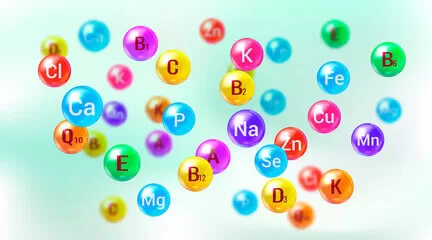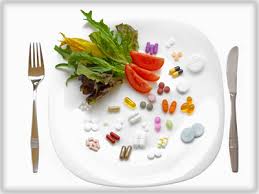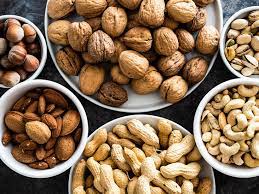Content of the Article
Vitamins and minerals are organic compounds that our body uses in very small quantities for various metabolic processes. They are essential nutrients required in daily nutrition. By keeping us healthy, they help our bodies function. Both vitamins and minerals work together to perform hundreds of tasks in the body.
We get vitamins and minerals from the foods we eat. What is necessary to be healthy is to eat a balanced diet by eating a variety of foods. It is best to get vitamins and minerals from natural foods.

Now let's talk about the properties, benefits, functions of vitamins and minerals and which vitamins and minerals are found in which foods.
What Are Vitamins and Minerals?
Properties of Vitamins
Vitamins, which are natural molecules in the body, are necessary for the healthy functioning of the system. They play a role in the continuation of vital functions such as blood cell formation, bone formation and regulating the nervous system. All the vitamins needed are met through food. Some are produced by the intestinal flora. It is healthier to take vitamins from natural foods instead of using vitamin supplements. For this, it is important to know “which vitamin is in which food”.
Vitamin A (Retinol)
Vitamin AIt is a vitamin that is necessary to strengthen eyesight and protect the skin. It controls tooth and bone structure. It is effective in stopping the development of breast cancer and developing resistance to infections in children.
Adverse situations that may occur in vitamin A deficiency are as follows;
- skin problems such as acne
- growth problems
- Skeletal development pause
- Problems with the cornea
- becoming susceptible to infections
In Which Foods Is Vitamin A Available?
- Milk
- Cheese
- egg
- Liver
- Fish oil
- Foie gras
- Butter
- Lettuce and green leafy vegetables
- Colorful vegetables such as potatoes, carrots, zucchini
- Dried apricots
- Melon
It is recommended to take 5000 IU of vitamin A daily. Vitamin A values of some foods are as follows:
- 28 grams of cheddar cheese 300 IU
- 1 egg 420 IU
- 500 cup skim milk XNUMX IU
- 1 nectarine 1000 IU
- 1 watermelon 1760 IU

Vitamin B1 (Thiamine)
Vitamin B1 Helps convert carbohydrates into energy. It helps the brain, nerve cells and heart functions to be performed in a healthy way. It improves the mental functions of the elderly.
The situations that may occur in vitamin B1 deficiency are as follows;
- Fatigue
- Depression
- Confused
- decreased appetite
- Digestive disorders
- Constipation
- Headache
- Edema
Which Foods Contain Vitamin B1?
- Whole grains
- Enriched grain products
- Legumes such as beans
- Et
- Liver
- Nuts, walnuts
It is recommended to take 1,5 milligrams of vitamin B1 daily. Vitamin B1 values of some foods are as follows:
- 1 slice of white bread 0.12 mg
- 85 grams fried liver 0.18 mg
- 1 cup beans 0.43 mg
- 1 pack oatmeal 0.53 mg
- 28 grams of sunflower seeds 0.65 mg

Vitamin B2(Riboflavin)
Vitamin B2 It is responsible for converting carbohydrates into energy, controlling growth rate, producing red blood cells, and skin and eye health. The negative conditions that can occur in the deficiency of this vitamin are as follows;
- burning, itching
- Negative development of the baby in the womb
- Weight loss
- Inflammation in the mouth
Which Foods Contain Vitamin B2?
- Liver
- Et
- poultry such as chicken
- Whole grains
- The fish
- Grain products
- Green leafy vegetables
- Beans
- Nuts, almonds
- egg
- Dairy products
The recommended daily value for vitamin B2 is 1.7 mg. Some of the vitamin B2 amounts of foods are as follows:
- 28 grams of chicken 0.2 mg
- 1 bagel 0.2 mg
- A glass of milk 0.4 mg
- 1 cup boiled spinach 0.42 mg

Vitamin B3 (Niacin)
Vitamin B3 facilitates the release of energy from food. It helps to protect the skin, nervous and digestive system. It helps to lower high cholesterol when taken in high doses. Doctors may prescribe high doses, but this can cause liver damage and irregular heartbeats.
Adverse situations that may occur in vitamin B3 deficiency are as follows;
- rapid mood change
- Headache
- flaking on the skin
- Digestive diseases such as diarrhea vomiting
- Weakness
Which Foods Contain Vitamin B3?
- Hazelnut
- Et
- The fish
- poultry such as chicken
- Liver
- Grain products
- Peanut Butter
- A small amount is produced by the intestinal flora.
The recommended amount of vitamin B20 in some foods is as follows:
- 1 slice of bread 1.0 mg
- 85 grams of cooked fish 1.7 mg
- 28 grams of roasted peanuts 4.2 mg
- 1 chicken breast 29.4 mg

Vitamin B5(Pantothenic acid)
This vitamin is vital for the production of essential chemicals necessary for body metabolism. It is effective in preventing ailments such as depression. If you do not want to have diarrhea, do not overdose.
Adverse situations that may occur in vitamin B5 deficiency are as follows;
- Breathing problems
- Skin problems
- Arthritis
- Allergy
- mental fatigue
- Headache
- Sleeping disorder
Which Foods Contain Vitamin B5?
- Whole grains
- Beans
- Milk
- egg
- Liver
- Rice
- The fish
- Avokado
The amount required for daily vitamin B5 is 7-10 milligrams. Some foods have the following vitamin B5 values:
- 1 cup of skim milk 0.81 mg
- One large egg 0.86 mg
- 1 cup of low-fat fruit yogurt 1.0 mg
- 85 grams of liver 4.0 mg

Vitamin B6 (Pyridoxine)
Vitamin B6 It is vital in the chemical reaction of proteins. Proteins, which have a role in all areas of the body such as muscles, skin, hair and nails, need vitamin B6 to function in the body. In addition, you cannot live without this vitamin, which is involved in the production of red blood cells.
Adverse situations that may occur in vitamin B6 deficiency are as follows;
- Depression
- Mumps
- Anemia
- Kidney stone
- Dermatitis
- Numbness
- Weakening of the immune system
Which Foods Contain Vitamin B6?
- Whole grains
- Banana
- Et
- Beans
- Hazelnut
- Chicken
- Liver
- The fish
- Potato
- Sesame
- Sunflower
- leblebi
The daily need for vitamin B6 is 2.0 milligrams. Some foods have vitamin B6 contents as follows:
- 1 whole wheat muffin 0.11mg
- 1 cup lima beans 0.3 mg
- 85 grams of cooked tuna 0.45 mg
- 1 banana 0.7 mg

Vitamin B7(Biotin)
Vitamin B7Helps convert food into energy. It has important tasks such as skin and hair health, preventing nail breakage, lowering blood sugar levels. Adverse situations that may occur in vitamin B7 deficiency are as follows;
- Hair loss and breakage
- Fatigue
- Muscle pains
- Nerve damage
- sudden change in mood
- Mental disorders
Which Foods Contain Vitamin B7?
- Egg yolk
- Liver
- Kidney
- Cauliflower
- Mantar
- Salmon
- It is produced in small amounts by the intestinal flora.
It is recommended to take 25-35 milligrams of vitamin B7 daily. Vitamin B7 values of some foods are as follows:
- 1 egg 13 mg
- 85 grams of salmon 4 mg
- 1 avocado 2 mg
- 1 cup cauliflower 0.2 mg
Vitamin B9 (Folic acid)
Tasked with providing energy to the body Vitamin B9It is beneficial for brain functions. It takes part in the stages of blood formation, cell formation and regeneration. Adverse situations that may occur in vitamin B9 deficiency are as follows;
- Anemia
- Anorexia
- Weight loss
- Diarrhea
- Forgetfulness
- Unrest
- susceptibility to infections
- Heart palpitations
Which Foods Contain Vitamin B9?
- Flax seeds
- pulse
- Spinach
- Chard
- Asparagus
- Broccoli
The daily need for vitamin B9 is 400 micrograms. The amounts of some foods containing B9 are listed below:
- 1 cup of broccoli 57 mcg
- ½ cup of asparagus 134 mcg
- Half a cup of lentils 179 mcg
- ½ cup chickpeas 557 mcg

Vitamin B12 (Cobalamin)
Vitamin B12 It is important for the normal functioning of the nervous system and the development of red blood cells. This water-soluble vitamin plays a protective role in Alzheimer's disease. It strengthens the immune and nervous system. Adverse situations that may occur in vitamin B12 deficiency are as follows;
- Mental and nervous dysfunction
- Tinnitus
- Depression
- Forgetfulness
- Fatigue
Which Foods Contain Vitamin B12?
- Beef
- Liver
- Poultry
- egg
- Milk
- Shellfish
- Cereals
- Dairy products
- It is produced by the intestinal flora.
The daily need for vitamin B12 is 6.0 micrograms. The amounts of some foods that contain vitamin B12 are listed below:
- 1 chicken breast 0.58 mcg
- One large egg 0.77 mcg
- 1 cup of skimmed milk 0.93 mcg
- 85 grams of lean beef 2.50 mcg
Vitamin C (Ascorbic acid)
C vitamin It is necessary for healthy teeth and gums. It aids in iron absorption. Vitamin C is necessary for the healing of wounds and the formation of healthy connective tissue. As an antioxidant, it fights the effects of free radicals. In addition to reducing the risk of lung, esophageal, stomach, bladder cancer, it also protects from coronary artery disease. Vitamin C should be a smoker's best friend. By slowing down the aging process, it delays the effects of cataracts. Adverse situations that may occur in vitamin C deficiency are as follows;
- Being vulnerable to diseases and infections
- bleeding gums
- Increase in dental caries
- scurvy, also known as sailor's disease
- Anemia
- Cuts not healing
Which Foods Contain Vitamin C?
- Citrus fruits and their juices
- Strawberry
- Tomato
- Beaver
- Broccoli
- Potato
- Cauliflower
- Brussels sprouts
- Spinach
- Kiwi
- Papaya
Vitamin C is a common vitamin found in foods and the recommended daily amount is 6 milligrams. Some foods containing vitamin C are as follows:
- 1 orange 70 mg
- One green pepper 95 mg
- 1 cup boiled broccoli 97 mg
- 1 glass of fresh orange juice 124 mg
Vitamin D (Calciferol)
Vitamin D.iIt strengthens bones and teeth by helping calcium absorption. It helps to maintain the amount of phosphorus in the blood. It reduces the risk of osteoporosis, breast and colon cancer. Vitamin D supplementation is recommended for vegetarians who cannot reach the daily dose and for the elderly who cannot receive sunlight. High doses should not be taken, otherwise it may cause poisoning.
Adverse situations that may occur in vitamin D deficiency are as follows;
- allergic rhinitis
- allergic asthma
- Psoriasis
- Metabolic syndrome
- Obesity
- Type 2 diabetes
- Hypertension
- heart ailments
In Which Foods Is Vitamin D Available?
- Milk
- Fish oil
- Mackerel
- Sardine
- Herring
- Salmon
- Butter
- sunlight
Vitamin D is an important vitamin and needs 400 IU daily. This vitamin, which you can get from sunlight, is not found in foods as much as sunlight. Some foods with vitamin D include:
- 28 grams of cheddar cheese 3 IU
- 1 large egg 27 IU
- 1 glass of skimmed milk 100 IU
Vitamin E (Tocopherol)
Vitamin Ehelps form red blood cells. It fights free radicals. It lowers the risk of esophageal, stomach cancers and coronary artery disease. It helps prevent cataracts by strengthening immunity in the elderly.
Adverse situations that may occur in vitamin E deficiency are as follows;
- Cancer and heart problems
- Poor concentration
- Fatigue
- Anemia
- Vomiting and nausea
- low thyroid hormone
- Weakening of the immune system
In Which Foods Is Vitamin E Available?
- Vegetable oils
- Nuts
- Butter
- Green leafy vegetables like spinach
- Seeds
- Almond
- Olive
- Asparagus
- Peanut
- Sunflower seeds
- Kiwi
- Avokado
Vitamin E is an essential vitamin and the daily intake is 30 IU. Some of the foods containing this vitamin are as follows:
- 1 cup boiled Brussels sprouts 2.04 IU
- 1 cup boiled spinach 5.4 IU
- 28 grams of almonds 8.5 IU
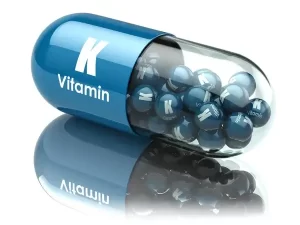
Vitamin K
With subgroups such as K1, K2, K3 Vitamin KThe main task of the blood is to clot. In cuts or bleeding wounds, when this vitamin is deficient, blood clots do not occur. Adverse situations that may occur in vitamin K deficiency are as follows;
- non-coagulation of blood
- bleeding gums
- Nose bleeding
- excessive bleeding during menstruation
In Which Foods Is Vitamin K Available?
- Herbs like thyme, sage, basil
- Brussels sprouts
- Green leafy vegetables
- Broccoli
- Asparagus
- Dried plum
- Soy oil
- Blueberries
- Blackberry
- It is produced by the intestinal flora.
Recommended amounts for this vitamin are 80 micrograms for women and 120 micrograms for men. Some foods containing vitamin K are as follows:
- 100 grams of basil, sage, thyme 1715 mcg
- 100 grams of Brussels sprouts 194 mcg

Properties of Minerals
The human body needs minerals to function normally. The functions of minerals in the body; It is to adjust the amount of water necessary by allowing chemical substances to enter and exit the cells, to activate the secretory glands in the body, to affect muscle movements and to provide information to the nervous system.
Minerals enter the body along with nutrients. Vitamins are made by plants, while minerals are extracted from the soil by plants. Minerals entering the body are excreted through urine and sweat after they complete their duties.
Calcium
The human body contains more calcium than any other mineral. CalciumEssential for healthy and strong bones and teeth. It promotes the normal functioning of the heart muscles and nerves. It also plays an important role in the blood coagulation process.
The following symptoms are seen in calcium deficiency:
- Muscle cramps
- Skin dryness
- increase in PMS symptoms
- bone fracture
- late puberty symptoms
- Weak and brittle nails
- Insomnia
- poor bone density
- tooth decay
What foods is calcium found in?
- Low-fat cheese
- Enriched soy products
- Dark leafy greens
- Low-fat yogurt
- Cooked okra
- Broccoli
- Low-fat milk
- Green beans
- Almond

Phosphorus
PhosphorusIt is essential for a healthy cellular system. It plays an important role in the repair of body cells. It is also necessary for the growth of normal cells. It keeps bones and teeth strong and healthy. It plays an important role in energy metabolism in the body. It also maintains the acid-base balance in the body.
Phosphorus deficiency has the following symptoms:
- Weakening of bones
- Joint pain
- weakening of teeth
- Anorexia
- joint stiffness
- Fatigue
What foods is phosphorus found in?
- Sesame seed
- Rice bran
- Roasted soybeans
- Sunflower seed
- Oat bran
- Pumpkin seeds
- Pine nuts
- Cheese
- Watermelon seeds
- tahini
- Flax seeds
Potassium
PotassiumIt is necessary for the normal functioning of nerve impulses and the muscular system. It provides balance of fluids. It protects heart health.
Potassium deficiency has the following symptoms:
- muscle weakness
- Paralysis
- Frequent urination
- muscle stiffness
- Muscle cramps
- Extreme thirst
- Abdominal pain
- Muscle pain
- muscle spasms
- Heart palpitations
- numbness, tingling
- abdominal cramps
- muscle tenderness
- dizziness, fainting
- Abdominal bloating
What foods is potassium found in?
- Haricot bean
- Carrot
- Raisins
- Tomato
- Dark leafy greens
- Baked potatoes
- Dried apricots
- Pumpkin
- Plain yoghurt
- Banana
- Mantar
- Avokado
Sulfur
SulfurIt is a mineral found in all cells of the body. It plays an important role in many biochemical reactions in the body. Improves hair, skin and nail health. It maintains healthy oxygen levels in the body and joints. It is one of the minerals that is very beneficial for hair.
Sulfur deficiency has the following symptoms:
- itchy skin
- Skin problems such as eczema, acne
- itchy scalp
- Toothache
- Nose bleeding
- Measles
- migraine, headache
- gas, indigestion
- Mumps
- Diarrhea
- hemorrhoids
- Impotence
- Throat ache
What foods is sulfur found in?
- Aloe vera
- Artichoke
- Avokado
- Bee pollen
- Brussels sprouts
- Dill
- Radish
- Spinach
- Strawberry
- Tomato
- Turnip
- Cannabis seeds
- Cabbage
- broad bean
- Peach
- poverty

Sodium
Sodium plays an important role in maintaining blood pressure. It is necessary for a healthy nervous system. Improves muscle health. It maintains the body's normal osmotic pressure and water balance. It is necessary for the absorption of glucose and the transport of other nutrients across membranes.
The following symptoms are seen in sodium deficiency:
- Muscle cramps
- Headache
- Fatigue
- apathy, feeling of weakness
- Nausea
What foods is sodium found in?
- Spinach
- Grass
- Pulses
- Sun dried tomatoes
- Salted peanuts
- Salted almonds
- Ayran
Chlorine
Chlorine cleans the blood by removing waste materials from the blood. It is the main anion in the body. Chlorine regulates osmotic pressure in tissues along with sodium and potassium. It prevents excessive oil formation.
The following symptoms are seen in chlorine deficiency:
- heat cramps
- excessive sweat
- burns
- kidney ailments
- Congestive heart failure
- Addison's disease
- Hair loss
- Problems with the digestive system
- dental problems
- Disruption in body fluid level
What foods is chlorine found in?
- Wheat
- Harp
- Grain
- Pulses
- seaweed
- Melon
- Olive
- Pineapple
- Green leafy vegetables

Magnesium
Magnesium It is an essential mineral for healthy bones and teeth. It is necessary for the healthy functioning of the nervous system. It plays an important role in energy metabolism. It enables many biochemical processes to take place. It is essential for healthy cells.
The following symptoms are seen in magnesium deficiency:
- Heart problems
- Weakness
- Muscle cramps
- Shake
- Breathing problems
- Dizziness
- Memory impairment and mental confusion
- Nausea
- Anxiety
- Hypertension
What foods is magnesium found in?
- Soybean
- Pumpkin seeds
- Sunflower seeds
- Beans
- Cashew nuts
- Dark green leafy vegetables such as spinach
- Pumpkin
- Sesame
- Almond
- Okra
Iron
Ironplays an important role in transporting oxygen from the lungs to the tissues. It is necessary for a healthy respiratory system and energy metabolism. It strengthens immunity.
The following symptoms are seen in iron deficiency:
- Fatigue
- swelling of the tongue
- breaking nails
- Throat ache
- spleen enlargement
- Cracks around the mouth
- Common infections
What foods is iron found in?
- Pumpkin seeds
- Cashew nuts
- Pine nuts
- Peanut
- Almond
- Beans
- Whole grains
- Cocoa powder
- Dark green leafy vegetables
Cobalt
Cobalt is a mineral necessary for the normal functioning of the pancreas. It is necessary for the formation of hemoglobin. It ensures the normal growth of the human body. It plays an important role in iron absorption.
The following symptoms are seen in cobalt deficiency:
- Chronic fatigue syndrome
- slow muscle growth
- Nerve damage
- Fibromyalgia
- Digestive disorders
- Anemia
- poor circulation
What foods is cobalt found in?
- Apricot
- sea products
- Hazelnut
- Cereals
- Green leafy vegetables
- Apricot kernel
Virgin
VirginIt plays an important role in the formation of RBC (red blood cells). It is necessary for healthy blood vessels. It improves the nervous system and immune system. It is also very important for strong and healthy bones.
The following symptoms are seen in copper deficiency:
- Anemia
- infections
- low immunity
- sensory loss
- difficulty walking
- Loss of balance
- Depression
- speech problems
- Shake
What foods is copper found in?
- Whole grains
- Beans
- Hazelnut
- Potato
- Sesame seed
- Sunflower seed
- Sun dried tomatoes
- Roasted Pumpkin
- Pumpkin seeds
- Dark green leafy vegetables
- Dried fruits
- Cocoa
- Black pepper
- Maya
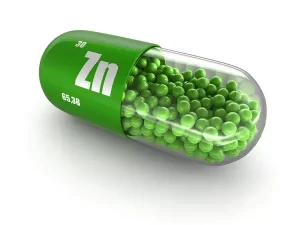
Zinc
Zincis necessary for the proper functioning of the immune system. It plays an important role in cell division and cell proliferation. It is necessary for the breakdown of carbohydrates. It provides healing of wounds. It is one of the very beneficial minerals for the skin.
Zinc deficiency has the following symptoms:
- Diarrhea
- abnormal brain development
- skin lesions
- Weakening of the immune system
- Slow healing of wounds
- eye lesions
- skin problems
What foods is zinc found in?
- Nuts
- Whole grains
- pulse
- Maya
- Roasted Pumpkin Seeds
- Roasted shelled seeds
- Dried watermelon seeds
- Dark chocolate
- Cocoa powder
- Peanut
Molybdenum
Molybdenumhelps to break down the toxic formation due to sulfites. It ensures healthy functioning of cells. It plays an important role in nitrogen metabolism.
Molybdenum deficiency has the following symptoms:
- liver problems
- Jaundice
- Nausea
- Fatigue
- Headache
- Mumps
- falling into a coma
- Watch
What foods is molybdenum found in?
- Walnut
- Lentil
- Pea
- Liver
- Tomato
- Carrot
- Beans
- pulse
- Almond
- Peanut
- Chestnut
- Cashew nuts
- Green soybeans

Iodine
Iodine, It is an important mineral for cell metabolism. It is necessary for the normal functioning of the thyroid glands. It supports the apoptosis process (programmed death of unhealthy cells). It supports protein synthesis. It also improves ATP production.
The following symptoms are seen in iodine deficiency:
- Shortness of breath
- abnormal menstrual cycle
- Deafness
- mental disability
- Posture disorders
- Depression
- Fatigue
- Skin dryness
- difficulty swallowing
What foods is iodine found in?
- Iodized salt
- Dry moss
- Peeled potato
- sea products
- Cranberry
- Organic yoghurt
- Organic beans
- Milk
- Organic strawberries
- Himalayan crystal salt
- Boiled egg
Selenium
Selenium, protects the body, prevents cell damage. It protects the body from the toxic effects of some heavy metals and other harmful substances. Some experts also think that it prevents cancer.
The following symptoms are seen in selenium deficiency:
Selenium deficiency causes Keshan disease. This medical condition affects the bones and joints. Mental retardation is an important symptom of selenium deficiency.
What foods is selenium found in?
- Garlic
- Mantar
- Brewer's yeast
- Brown rice
- Oat
- Sunflower seed
- Wheat seed
- Harp

Daily Mineral Needs
| Minerals | Daily need |
| Calcium | 1.000 mg |
| Phosphorus | 700 mg |
| Potassium | 4.700 mg |
| Sulfur | 500 mg |
| Sodium | 1,500 mg |
| Chlorine | 2,300 mg |
| Magnesium | 420 mg |
| Iron | 18 mg |
| Cobalt | 1.5 μg of vitamin B12 |
| Virgin | 900 μg |
| Zinc | 8 mg |
| Molybdenum | 45 μg |
| Iodine | 150 μg |
| Selenium | 55 μg |
To summarize;
Vitamins and minerals are organic compounds that our body needs. These should be obtained from natural foods. Since they take part in many reactions in our body, some problems arise in their deficiency.
If we cannot obtain vitamins and minerals from natural foods or if we have absorption problems, we can take supplements with the advice of a doctor.

